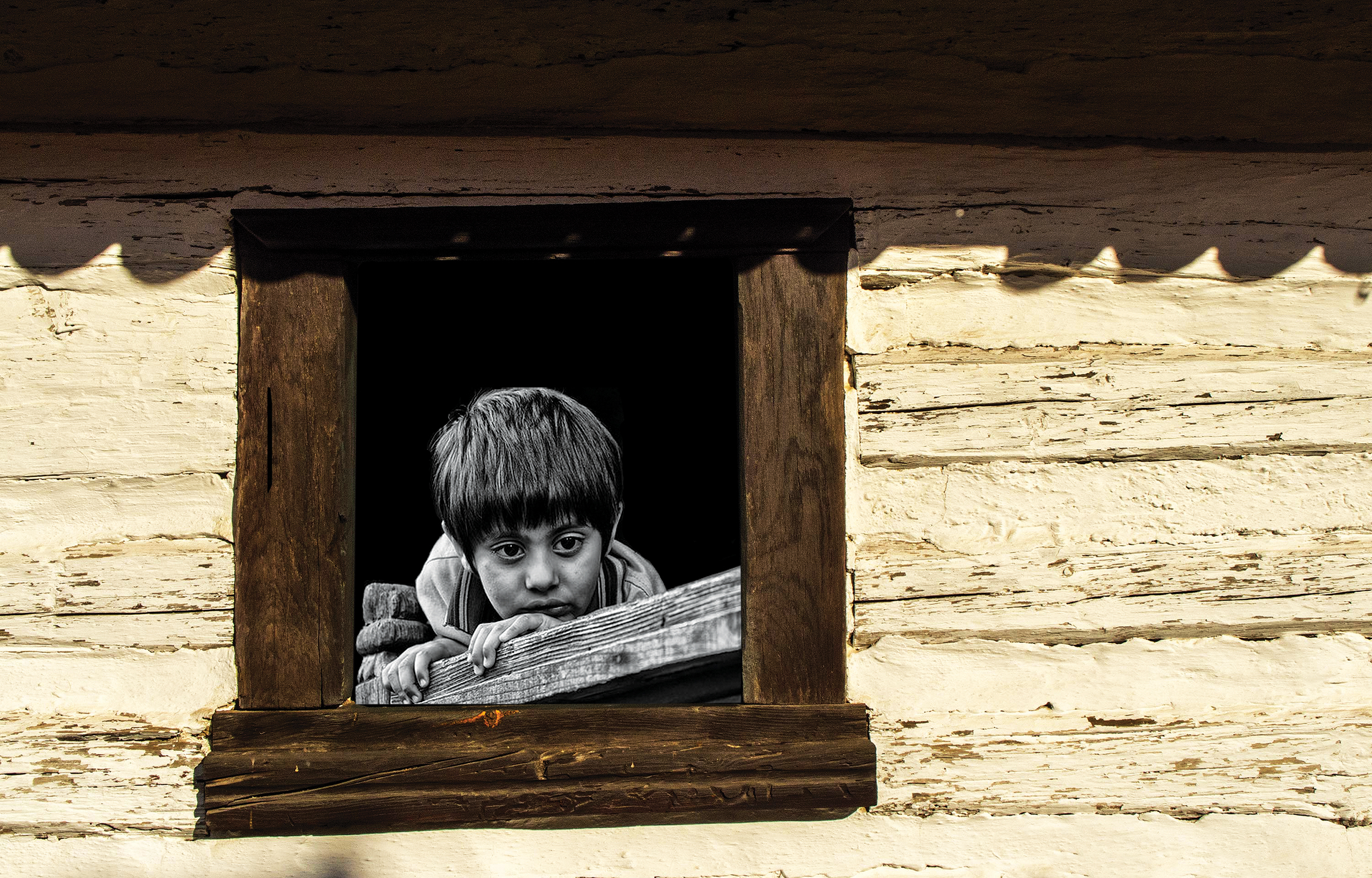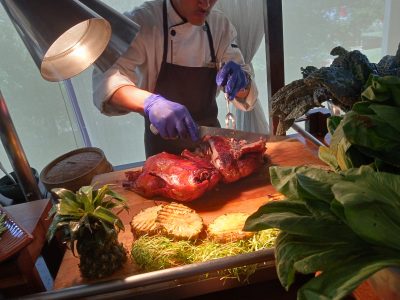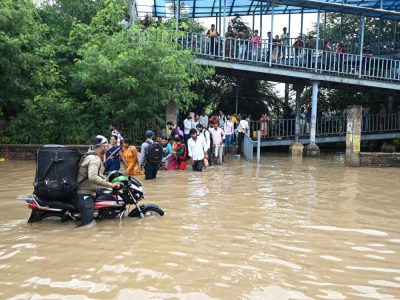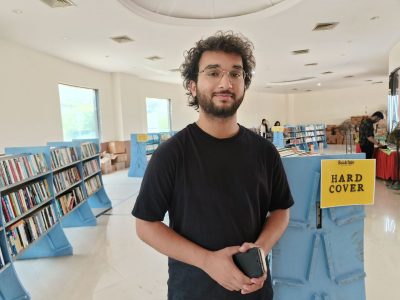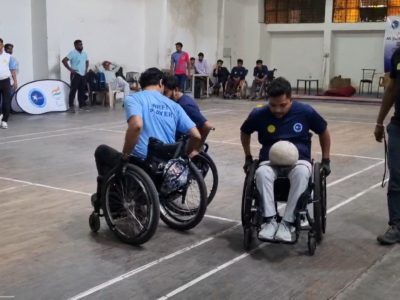When a couple opts for adoption, very few consider children with special needs. Foreigners often do. What holds us back?
For four long years, Kajal (name changed), has been waiting for some kind couple to come and adopt her. This 11-year-old was abandoned at the age of seven and now stays at a childcare home in the capital. Some refuse to adopt her because she is wheelchair bound and some who show interest in adopting her despite this, back out when they are told that she is a victim of sexual abuse.
She is one of the quietest children there. She eats less and also does not sleep properly. After several counselling sessions, the childcare home found out that she was sexually abused by someone in her family. “Adoptive parents mostly reject her because she is differently abled,” says an official at the childcare home on condition of anonymity, adding, “Even when there are parents who want to adopt her, after they are told that she is a victim of sexual abuse, they change their decision.”
There are several such differently abled children waiting for a loving home. Children with minor or correctable health issues that can be easily managed and have no bearing on the quality of life are categorised as children with special needs. There is a broad range, covering 59 physical conditions. More than 50% of the children waiting to get adopted fall in the ‘special needs’ category.
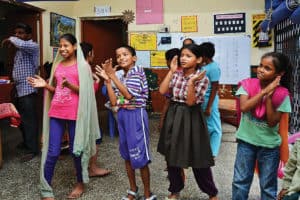
Counsellors say that social stigma and fewer facilities for the disabled in the country propel parents to look for a ‘perfect child’. In 2016-17, out of 3,210 adoptions, only 49 were of children from the special needs’ category. On the other hand, 41% of the children adopted by foreigners are children with special needs.
Talking about children with special needs, adoption counsellor Radha Nagesh says, “Before blaming the adoptive parents, I think we should look at the state of medical care in our country, which discourages many couples from adopting these kids. Medical and healthcare facilities in India are not at par with those abroad.”
Parth, a differently-abled 18-year-old boy who is currently studying in Delhi University, spent years at an orphanage but never got adopted. “As a child, seeing your friends leave with their adoptive parents deeply affected me. Every time, I was the one who got left behind. There came a time when I became fearful of making friends because I did not want to see them leaving,” he says, adding, “I grew without parents because no one was ready to adopt me. I started blaming myself and felt that I am not worthy of experiencing parental care and love.”
Parth still wonders how life would have been if he would have got adopted. He says, “I too, could have got a home and a loving family. Maybe it is just destiny or maybe differently abled people like me are not considered ‘fit’ to be adopted. People want children to fall in line with their requirements, like we are some commodities. They do it more for their selfish reasons and not to give the child a better life.”
He also asks a poignant question. “When they have a biological child, they do not get to choose, so why in the case of adopted children?” he questions.
Out of the ordinary
“Whenever we are at a railway station or in the underground parking of a shopping mall, Veda gets scared. We think she still has not forgotten the trauma,” says Kavita Baluni who adopted a child with Down’s Syndrome. Veda was abandoned by her biological parents, probably because of her medical condition, at the railway station when she was six months old.
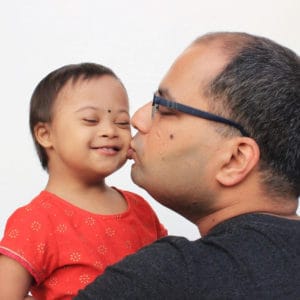
She is two now but still looks like a baby. Baluni says that having Veda in her life has turned her into a completely different person. “The last time we were this happy on getting a legal document was when we got married,” she says.
Kavita always wanted to adopt a baby girl. She adds, “The moment we saw her photos, we decided that we wanted to adopt her. We did a little research on Down’s Syndrome and could not find a single reason for not adopting a baby with this condition. Veda is just like any other child and I am just like any other mother.”
Despite the resistance from family, she and her husband chose to go ahead with the decision. “When my in-laws said that she will not be able to support us in our old age, we told them that we are doing this for the baby and not for ourselves. But Veda is such an adorable child that now they love playing with her. I give her the credit for the little acceptance that our decision has got.”
“When we have so many orphans and abandoned children in India, what is the need to conceive a child?” she wonders, adding that she wants people to stop stigmatising adoption. “There is no difference between a child who is adopted and one who is conceived. Also, I urge parents who abandon their differently abled kids to give such children a chance. They too, are capable of being great human beings. I have seen people in the US adopt differently abled children. But in India, biological parents abandon their own child and adoptive parents do not even consider adopting children with special needs.”
Incongruent figures
All in all, the number of in-country adoptions has come down drastically. According to data from Central Adoption Resource Authority (CARA), a statutory body of the Union Ministry of Women & Child Development, 3,276 children were adopted in 2017-18 as against 5,693 children adopted in 2010, suggesting a significant decline in in-country adoptions.
According to Child Adoption Resource Information and Guidance System, one child is available for every 10 adoptive parents in India. The number of couples who register for adoption is high but enough children are not legally free for adoption. Those who belong to the special needs category and those who are older are mostly left unadopted — 80% of the adopted children belong to the age group of 0 to 2 years.
Saras Bhaskar, a counselling psychologist and coach, says, “Even if parents are ready to adopt, they prefer a healthy child to one with special needs. Mostly such children never get adopted.” Older child in any case tend to be left behind, as adoptive parents feel they will not be able to integrate well with the family.
Bhaskar admits that it is difficult for the adopted child to adapt to a new way of life and to adjust with new people after a certain age. They struggle to get used to a different atmosphere. She says that such children need to be prepared for adoption. Bhaskar also points to another danger. “Many a time, parents end up adopting older children for their own selfish reasons. Once I came across a case where a couple lost their child in an accident and they adopted an older child, named him after the son who had died and decided that he would also become an engineer like their son, without considering his aptitude.”
The problem that arises in the case of older children is that the parents are not counselled and the children are also not prepared. Parents feel that it will be difficult to bond with older children. They prefer having a child who has less memories of his/her orphanage life. There is a preconceived notion that older children will not get along well with the family. But this needs to be dispelled with counselling.
Loraine Campos, adoption-in-charge at Delhi Council of Child Welfare, says, “Most of them want children younger than a month, but guidelines suggest that a person can’t adopt a baby who is less than 90 days old. Some are coming forward to adopt older children but it is still difficult for such children to get adopted.” Campos says that differently abled children also face a hard time because people do not want to take on such a big responsibility. “We need to counsel them and convince them,” she adds.
CARA CEO Deepak Kumar agrees that people are reluctant to adopt older children and those in the special needs category. “With older children, adoptive parents feel that the children will not be able to mould themselves according to their family. We need counselling to convince parents that such children too, need a home,” he adds.
A conflicting reality
Arun Dohle, co-founder of NGO Against Child Trafficking (ACT) who was adopted by a German couple but later came to India and found his biological mother, has a different perspective on adoption. He says that the government is pushing for adoptions because they want to shrug off the burden. He also says that inter-country adoptions are promoting child trafficking. “You do not know where these children come from. Many are separated from their parents. The government does not even make efforts to reunite the missing children with their parents. Instead, they put them up for adoption.”
Opposing inter-country adoptions, he says, “Many children in the special needs category are adopted by foreigners because they have better access to health insurance and health care facilities. But the child loses touch with his language and culture in the process.” He further adds that the system needs to be revamped to improve institutional care, focusing on caring for these children instead of making efforts to get rid of them through inter-country adoptions.
He looks at it from child rights’ and child care perspective and says that a thorough background check needs to be done before putting the child up for adoption. Narrating an incident, he says, “A child who was an orphan but had relatives was being given away to an Italian couple. This is like ripping the child away from the family.” Such adoptions cause disruptions for the child.
Inge Verstraten was adopted from India by a Dutch couple when she was nine months old. She says, “I felt very alone and they did not love me. When I was a 9-year-old, my adoptive mother fell sick and her family wanted to send me to a childcare home.” But she went on to complete her education and got three diplomas. “Even though I am still in the Netherlands, my heart is in India and I still am hopeful that some day I might find my
biological mother.
‘We two, our one’
DVL PADMA PRIYA
A first person account of an adoptive mother who has set up a support system for other parents
We always knew we wanted to adopt a girl child. It was just something about which we had absolute clarity. The ‘why’ of our decision is multi-faceted: from the belief that every child needs a family to our collective experiences in our lives with regards to children and child rights.
It’s not that we didn’t think of having a biological child but we knew that adopting a child was a top priority. To be honest, the pressure to have a biological child was always omnipresent since the time we got married. Very typical right?
But in 2015, when the new adoption guidelines were passed and the process made more transparent, we decided the time was now and we signed up to adopt. We were ‘early adopters’ of the new process and since we weren’t very particular which state we wanted our daughter from, things moved fairly quickly.
While everyone, including the social worker, told us that we would have to wait at least a year, we got lucky and our daughter came into our lives within six months filling our lives with immeasurable joy.
The new process was transparent and clear. Unlike in the past, where we heard that parents had to shell out lakhs in the form of “donations” to agencies, we didn’t have to shell out a single rupee extra apart from the government mandated amount.
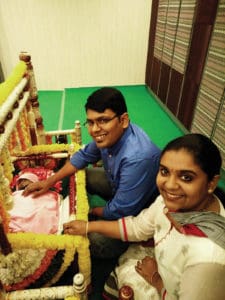
But during the process and after, we saw, heard and read some things that left us very disturbed. For instance, in many adoption groups, we saw that people would come and seek babies as if they were mere commodities who can be purchased. We saw that voices of adoptees, especially if they were highlighting loopholes in the process, were curbed and often thrown out.
Then there was this exalting of those parents who adopt or the stigmatisation of families who adopt — coupled with the stigma of infertility. You would think that in 2018 such instances are an exception, but surprisingly they aren’t. We were also helping other couples in understanding the process and also answering some questions away from the process — such as concerns linked to disclosure.
It was then that we decided to start our own podcast. With our collective experience in research, journalism and communications, we came together with a friend to start our own podcast platform Suno India (www.sunoindia.in) on which the podcast ‘Dear Pari’ is hosted.
While initially, the purpose was to break the stigma around adoption and break misconceptions linked to it, we also thought we should discuss some of the root factors causing a certain stereotype around adoption — namely mass media (movies, ads, tv shows). We also thought let’s be honest about our own concerns of raising a child who was adopted and understand what needs to be done to tackle that anxiety and interviewed adoption counselors as part of this series.
From shaping identity to disclosing about adoption, we are doing our bit to cover as many related topics as we can. We will also be talking about single parenting and those raising special needs children apart from adoption trauma. And last but not the least, we have given a platform for adult adoptees to raise their concerns about adoption.
We also want to talk and acknowledge the uncomfortable reality that adoption in India also has a dark side and that it is one where there is unchecked trafficking taking place fueled by demand for adoption. We also feel that it is not sufficient to say that laws are child-centric but it should be so in reality.
For this we need to ask the tough questions: Is adoption the beginning and end-all of child care? Should we, as a community and society, be doing more to take care of our children by also strengthening institutional care, restorations and supporting women to raise their kids?
We hope that as a community of parents who have chosen to adopt, we accept that all is not hunky-dory in the world of adoption and push for it to get better — for the children, not for adoptive parents. And most importantly, we must listen to the experiences of adoptees — even when they are not telling us what we want to hear.
Priya is an independent journalist and co-host of India’s first narrative podcast on adoption

